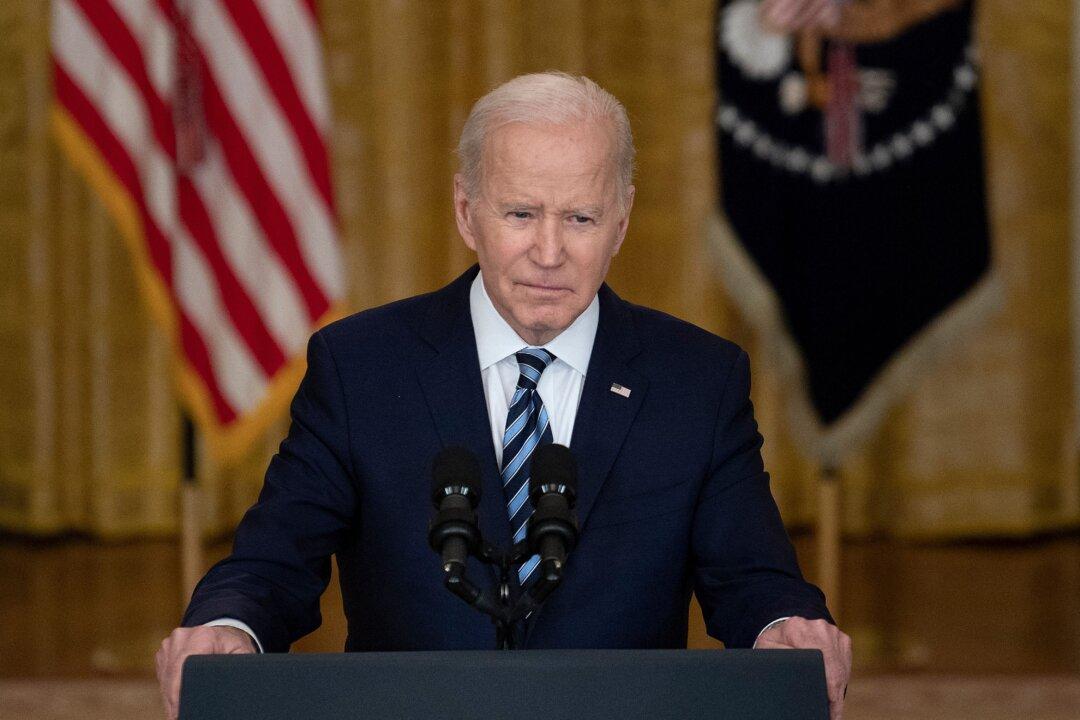U.S. President Joe Biden issued a veiled criticism against China on Thursday when he unveiled new sanctions on Russia, following Moscow’s all-out assault on Ukraine.
“Putin will be a pariah on the international stage. Any nation that countenances Russia’s naked aggression against Ukraine will be stained by association,” Biden told reporters at the White House, without naming China.





